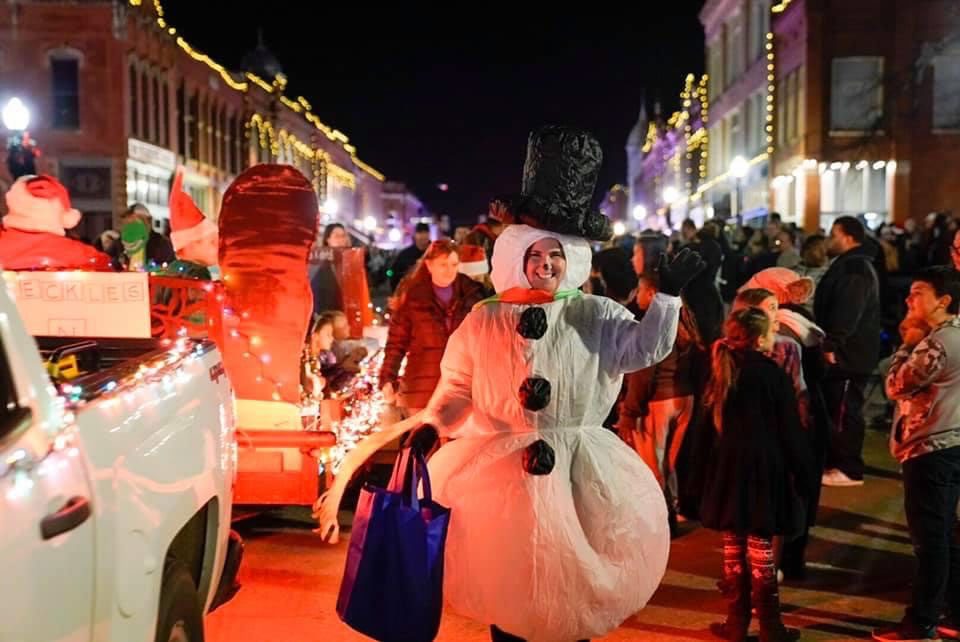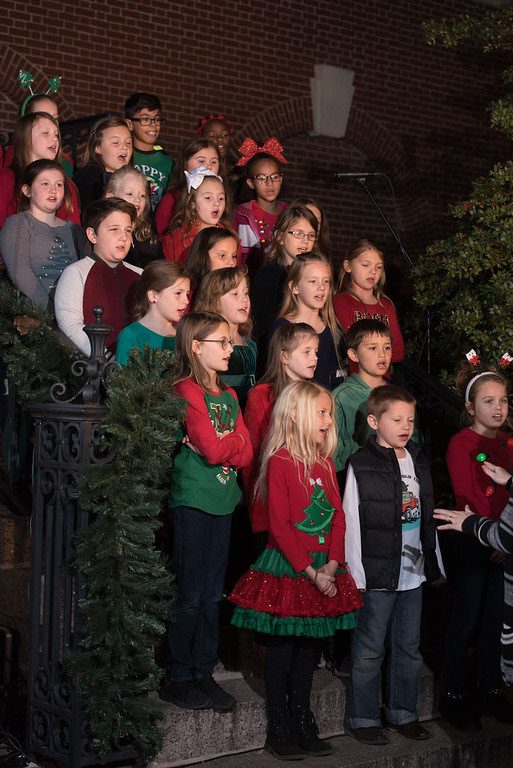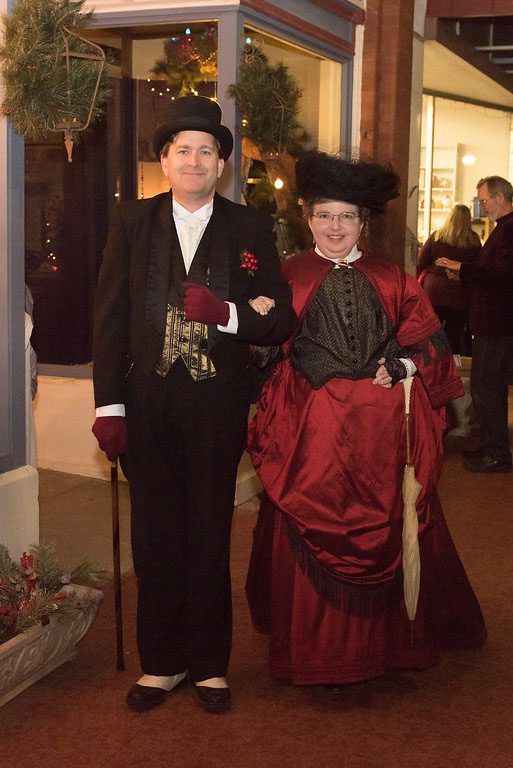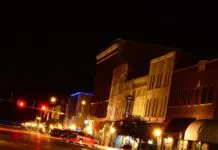Excitement is in the air in Guthrie, Oklahoma’s first capital, as the city anticipates a celebration on two levels.
Guthrie residents commemorate not only the holiday season, but the return of the historic downtown celebration itself after a year absence due to COVID-19. The annual December holiday extravaganza is just one of the ways that Guthrie remains a city rich in Oklahoma history and architectural charm.
Kailyn Swonger, vice president of the Guthrie Territorial Christmas Foundation, says the foundation board is eager to get the party started.
“We’ll have all the traditional events,” says Swonger. These include the traditional Victorian Christmas Walks – in which townspeople and others don period costumes on Dec. 4 and Dec. 11 – and a Distinctive Homes Tour on Dec. 4, featuring several of Guthrie’s most unique homes and businesses decorated in seasonal finery.
Swonger says the organizers’ goal is to embody the Christmas spirit in Guthrie, a city of just under 11,000 according to the 2020 census.
Once little more than a prairie stop on the AT&S Railroad, Guthrie became a city of about 10,000 practically overnight following the April 22, 1889, land run that opened the Unassigned Lands to white settlement. Oklahoma Territory was created by Congress in 1890, with Guthrie as the capital, then the town was designated as the state’s capital when statehood arrived in 1907. A symbolic ceremony took place on the steps of the Guthrie Carnegie Library on Nov. 16, 1907, “wedding” Oklahoma Territory and Indian Territory.
Photos courtesy Guthrie Territorial Christmas Foundation
The library is now part of the Guthrie Territorial Museum, operated by the Oklahoma Historical Society. Nathan Turner, museum director, says the collection traces Oklahoma’s history from the Louisiana Purchase through statehood.
A massive restoration project in recent years has earned Guthrie recognition as the nation’s Largest Historic Preservation District, according to the Guthrie Chamber of Commerce. Turn-of-the-century, Victorian-style architecture and cobblestone streets add to the city’s charm.
“There is just so much history here,” says Chamber member Vivian Smith. “You can walk around and read the [historical] plaques all over downtown.”
Verla Cline, tourism coordinator for the City of Guthrie, says that after Guthrie lost the state capital, the town focused on preserving its history.
“We got frozen in time,” she says. “Our buildings have become our greatest asset.”
Six major festivals are planned for 2022, starting with the ’89ers Day event in April. Tourists will find plenty of places to stay, from hotels along Interstate 35 to several quaint bed and breakfasts closer to town.
Among attractions are the Lazy E Arena northeast of Guthrie, and the rebuilt Double Stop Fiddle Shop and Music Hall downtown, which was owned by legendary fiddler Byron Berline, who died earlier this year.
Other attractions are the State Capital Publishing Museum, the Oklahoma Frontier Drugstore Museum, the 1930s-era Jelsma Stadium, and the Pollard Theatre, once a funeral parlor and later a vaudeville theater. Also worth seeing is the Scottish Rite Temple, located near the downtown area, which includes the Legislative Hall where the state legislature’s first session was held.
Outdoor recreation abounds in and around Guthrie. Not only are various water sports available at Liberty Lake and Guthrie Lake, the heavily wooded Cimarron National and Cedar Valley golf complexes west of the city offer a combined 72 holes of scenic championship golf.





























